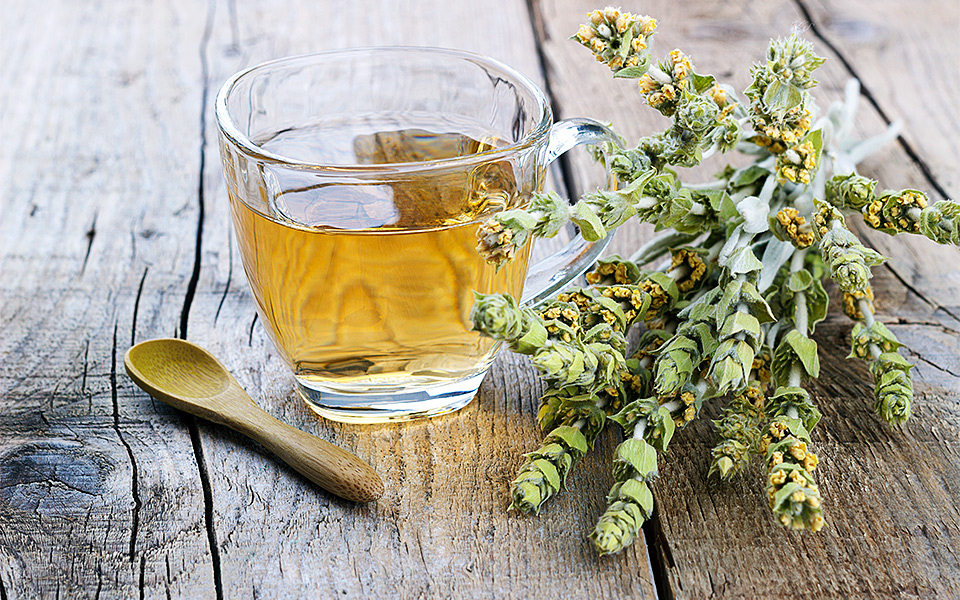Many a traveller has discovered the thrill of getting herbaceous wafts of fragrant aromas while walking in overgrown Greek landscapes. Aromatic plants are to be found everywhere in the country, from manicured urban gardens to scrubby mountain trails. But they have much more to offer than just their delightful aromas.
The health benefits of these plants have been recognized for millenia and to this day they continue to form the basis of folk remedies throughout the Greek countryside and villages. And it is not by accident that this wisdom has been passed down across generations: a growing body of scientific research confirms that these plants contain a host of compounds likely to help prevent and combat diseases such as colds and flus, high blood pressure and even Alzheimer’s and cancer.
Now entrepreneurs are taking Greek herbal tea into the 21st century, producing blends that are world-class in their complex aromas, designer packaging and health-boosting benefits. Alternatively one can purchase loose dried herbs at supermarkets and shops throughout the country (and for only a few euros) and practice making delicious blends at home.
To get you started here is a list of eight of some of the most commonly used plants for herbal tea in Greece:
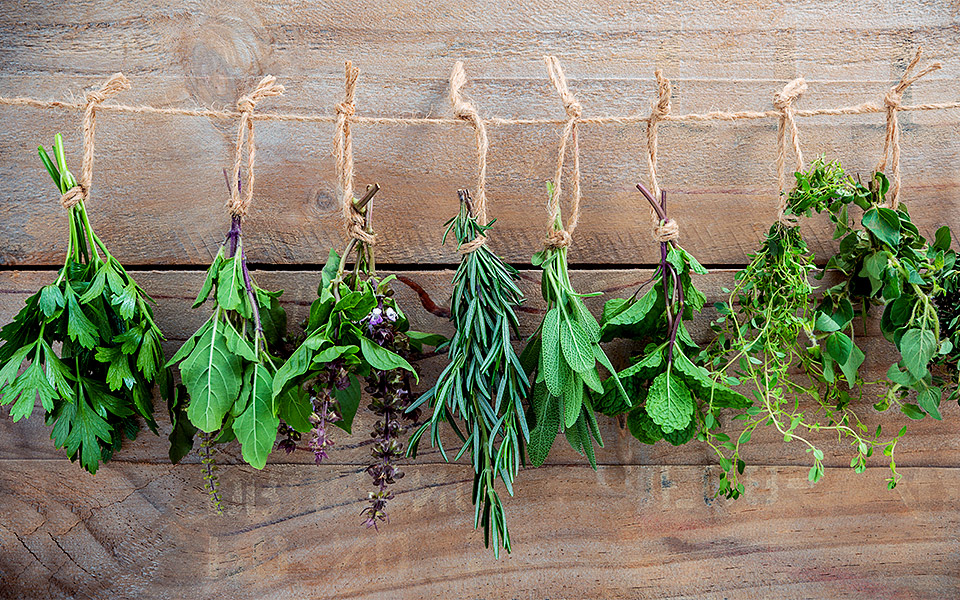
© Shutterstock
Mountain Tea / Tsai Tou Vounou (Pictured top)
You could call Mountain Tea “ironman tea” as its official Greek name sideritis (ironwort), literally means ‘he who is made of, or contains iron’. Shaped like a spear with multiple yellow flowers, it grows at higher altitudes, has a mild and sweet aroma and is delicious drunk both hot or on ice and with a slice of lemon. Mountain tea is the most commonly found Greek herbal tea and is often used as a base for more complex concoctions.
As a remedy:
A potent antioxidant (some recent studies suggest even more so than green tea), the essential oils of the plant also have antimicrobial and antifungal properties. Traditionally mountain tea has been used to help ease stress as well as inflammations of the respiratory and gastrointestinal systems. Recent scientific research also indicates that certain compounds of the plant may help prevent cognitive disorders such as Alzheimer’s and dementia.
How to make herbal tea
For a strong cup, heat 3 cups of water and at boiling point add 1tbsp of your herb (or herbs) of choice. Lower heat to medium-low and simmer for 10 minutes. Strain, add honey and sip throughout the day. For a lighter rendition, add boiled water to a teapot with at least 1tbsp of the herb and steep for 10-20 minutes (depending on how strong you like it), strain and add honey. Note that these herbs can also be added to a hot bath, offering their benefits via inhalation as well the skin.
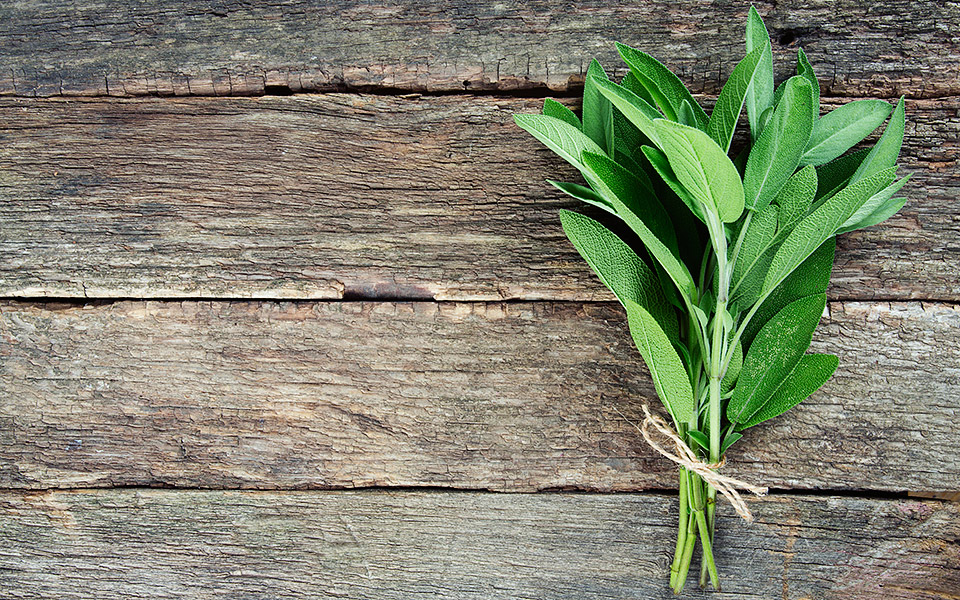
© Shutterstock
Sage/ Faskomilo
With its characteristic ‘fuzzy’ leaves, sage or Salvia officinalis was considered a holy herb in ancient Greece and has long been used for its tonic and anti-microbial properties. Among its many other uses, women brewed it for husbands returning from war as a fertility-tonic.
Many different sub-types of sage exist and the fresh herb is commonly used in many savory dishes. Tea can be made from dried leaves although when brewed alone it’s somewhat peppery aroma can be rather intense, developing a bitterness if left to steep too long. Try adding just a few dried leaves to a mixture of other herbs.
As a remedy:
Sage is rich in compounds with strong antioxidant properties. The herb is also thought to stimulate brain function, and like its ‘sister herb’ rosemary, boost memory. Scientific studies even indicate it may also help in preventing cognitive disorders such as Alzheimer’s and dementia.
Essential oils from the plant also have antimicrobial and anti-inflammatory properties and it is often used for treating gastric imbalances. It can also been used as a gargle for mouth complaints and sore throats. The herb also has high levels of Vitamin K which helps strengthen bones.
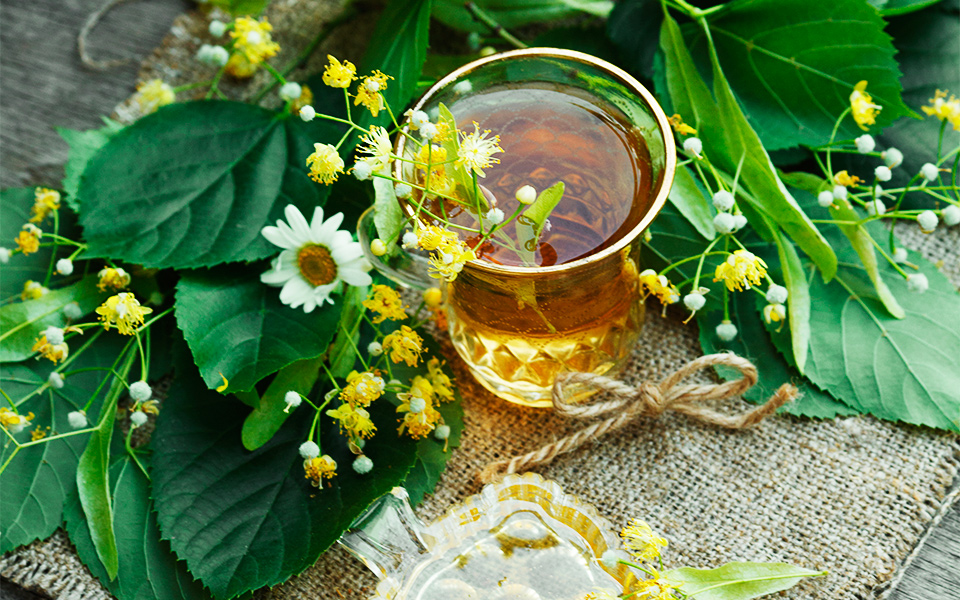
© Shutterstock
Linden Flowers / Tilio
A Greek folk tale says that if one falls asleep near Linden blossoms they will be instantly transported to a land of fairies. This legend may have some grain of truth in it; blossoms of the plant are customarily gathered immediately – if left on the plant for too long, they are said to develop narcotic properties.
As a remedy:
Linden flowers have high concentrations of phytonutrients and flavanoids with strong antioxidant functions. The plant is considered helpful in relieving mental and emotional stress, reducing blood pressure and countering nervous palpitations. It is also used as an aid for fighting the common cold, helping to reduce throat irritation and mucus production. It is often given to children when battling colds as a sleep aid, heated in goat’s milk.
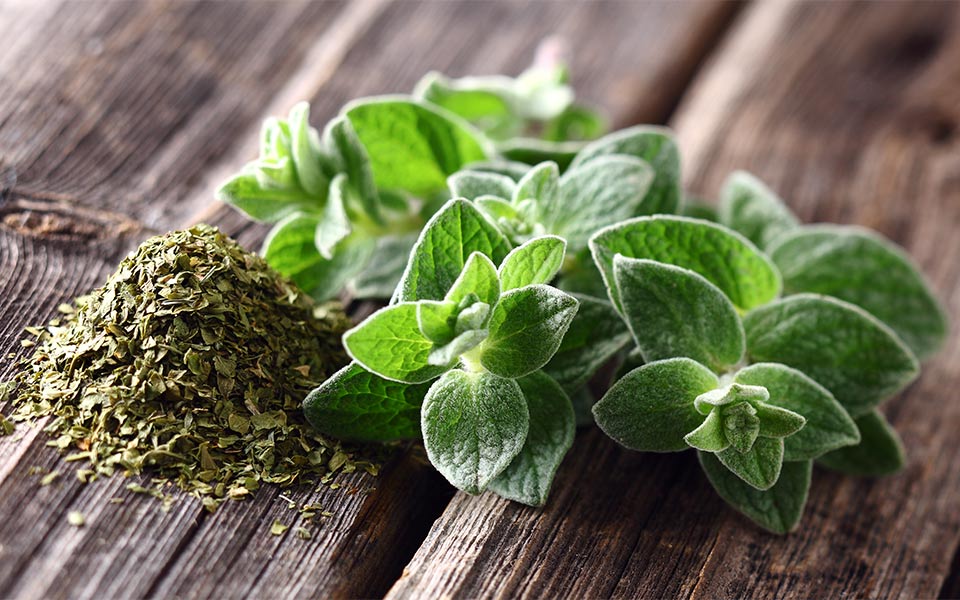
Oregano / Rigani
Oregano is far more than a perfect seasoning for Greek salad. In ancient Greece the plant was a symbol for joy and was even used to make bridal wreaths. There are many different sub-types of the herb with differing aromas. The leaves can either be used fresh or dried as a cooking spice or in tea blends.
As a remedy:
Oregano contains numerous compounds with antioxidant, anti-microbial and anti-fungal properties. Traditionally it is thought to help clear chest infections and facilitate breathing; its potent antiseptic qualities are said to make it an ideal parallel treatment for colds, infections and flu. It is high in vitamin C and iron.
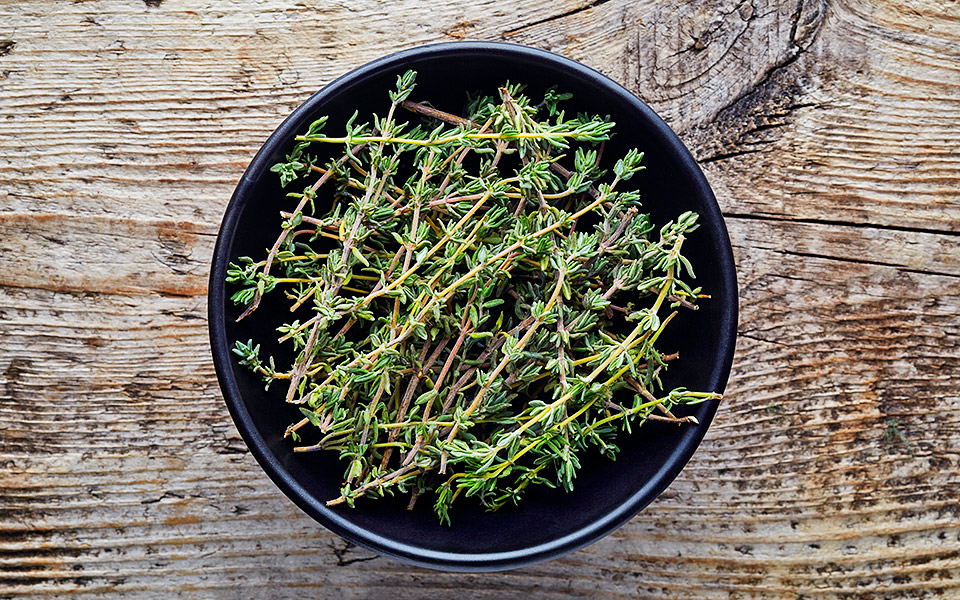
© Shutterstock
Thyme / Thymari
Before going to war, the Spartans were said to rub thyme on their chests, while the Romans added it to their bathwater as it was thought to serve as a fortifying tonic for the entire body. In ancient Greece thyme was considered to be the herb of Aphrodite; according to one legend the plant was created from the tears of Helen of Troy.
As a remedy
Thymol, a volatile oil found in the plant is a potent antiseptic known to have anti-microbial and anti-fungal properties, with a wide range of uses both in the body and as an organic pesticide. Thyme is also thought to help relieve indigestion, soothing gassiness and cramps. High in iron, calcium and Vitamin K, thyme is also thought to ease respiratory ailments such as coughing and sinus congestion.

© Shutterstock
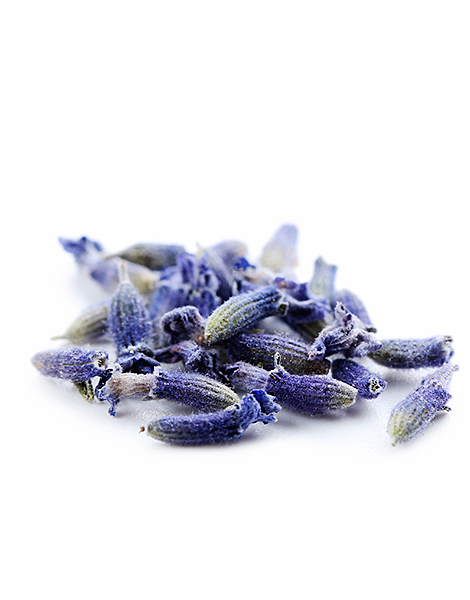
© Shutterstock
Lemon Verbena / Louisa
Zesty, lemony Lemon Verbena is not a classical Greek herb, as it was brought here from South America (it is native to Argentina and Chile) in the 1700s. However today it is one of the most widely grown and used herbs, chiefly to make a very pleasant-tasting tea, that can be drunk both hot or iced.
As a remedy:
Calming (and good for children, as are linden and lavender teas) it is thought to help in balancing hormones. It is thought to help combat fever and infections and an aid for relieving indigestion, gassiness and cramping. Lemon Verbena is also considered a good slimming aid as it helps curb and regulate the appetite. Indeed some modern studies have lauded it as a perfect workout aid as its particular antioxidants are thought to protect and repair muscles damaged during exercise.
Lavender
Dioscorides, the physician and father of Greek herbal medicine, sang the praises of lavender’s calming effects and administered it for stomach upsets and nervous afflictions. The ancient Egyptians used it in their funerary rites, in incense and in perfumes for its calming, love-enhancing and antimicrobial effects (helping with mummification). Its flowers are often gathered to fill fragrant sachets for lining drawers or pillow cases and protecting linens, but they can also make for a soothing and delicious tea.
As a remedy:
Sedative and calming for the nervous system, mood-enhancing (the Chinese use it for ‘cooling’ the heart and clearing the mind) and a reliable sleeping aid. Thought to relieve digestive issues and bloating lavender also has antiseptic and anti-inflammatory properties.
Flu Recovery Tea Recipe by Botanist Dimitris Kallimanis
“In a mug of freshly boiled water add 7g in equal measure of red rose petals, lavender flowers, oregano leaves, thyme leaves, mountain tea and dittany (diktamos). Leave to steep for 10-15 minutes. Add 1 tbsp of thyme honey, which has antimicrobial and warming actions. Lavender, thyme and diktamos have strong antibiotic properties and are effective in treating fever, infections and respiratory ailments. Red rose petals also help to reduce fever, while mountain tea acts as a tonic and detoxifier for the internal organs.”
Dimitris Kallimanis is a graduate of the School of Pharmacy and has been studying plants and herbs for over 24 years. He is also the author of the book: “Cosmetics and Therapies from Ancient Greece and the Byzantium to the Modern Day.”
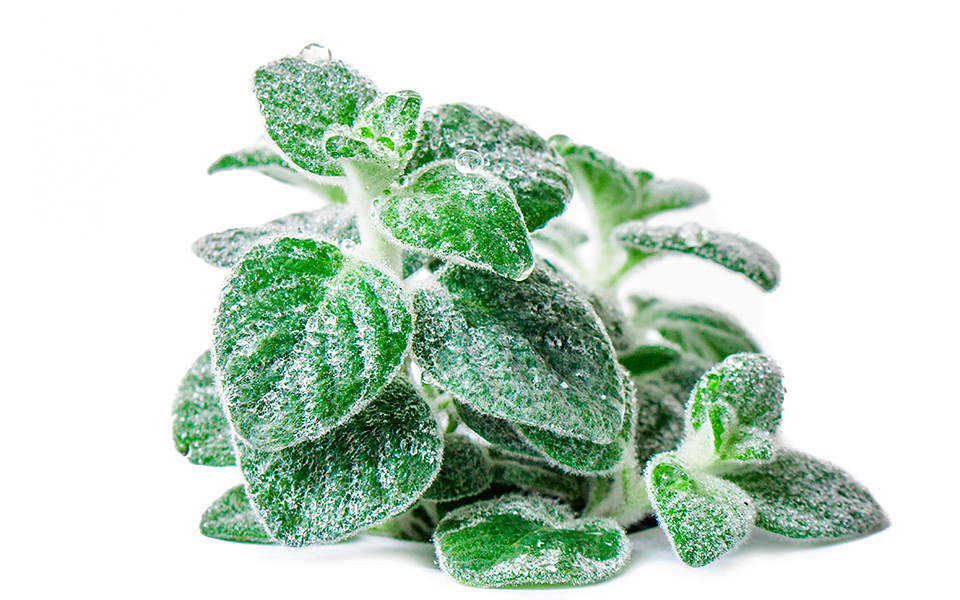
© Shutterstock
Dittany / Diktamos
Named after the Cretan Mount Dikti where it is said to have originated, Cretans also know dittany as erontas, meaning ‘youthful love’ and consider it an aphrodisiac. Local lore has it that the goddess of the hunt, Artemis, used it for healing wounds, while Aphrodite used it to soothe labour pains. Homer, Plutarch, Dioscorides and Theofrastus all lauded its healing properties.
As a remedy:
Compounds of Dittany are powerful antioxidants. The essential oils have also antiseptic and anti-fungal properties and are often used in ointments to treat burns and skin ailments. Tea made from dittany is used to relieve tension headaches and as a relaxant. Dittany is also used to relive indigestion, colic, stomach cramps and bloating. It is also thought to be a diuretic and to combat fever.

